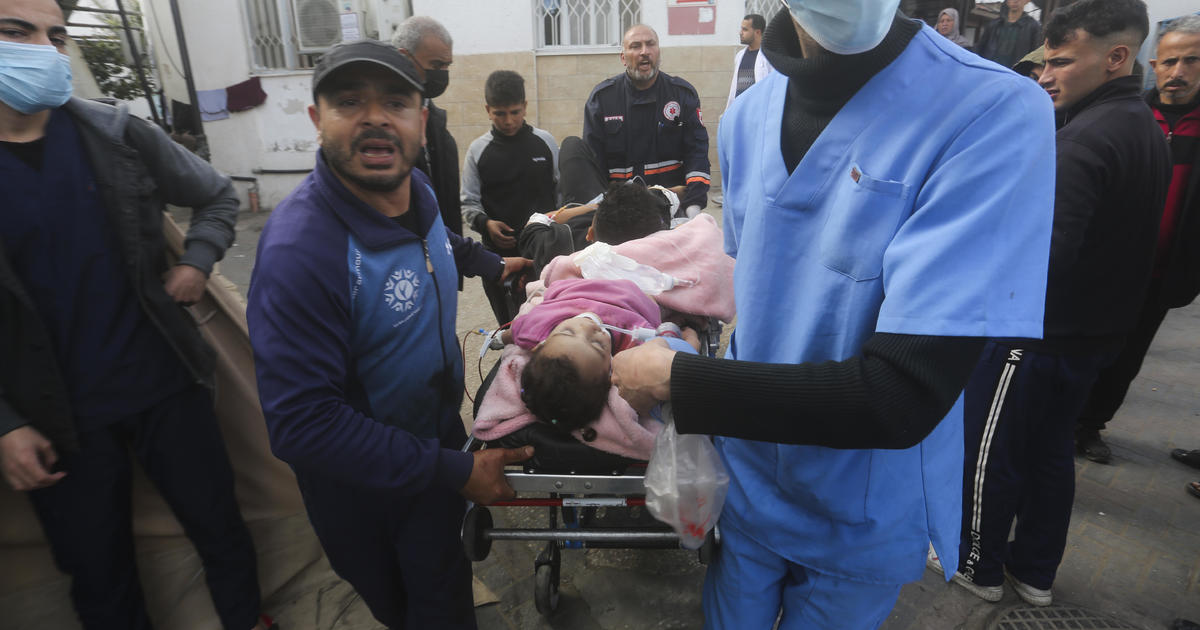In an interim judgment, the United Nations’ International Court of Justice on Friday ruled that Israel must take measures to prevent genocide in Gaza, but it stopped short of ordering an immediate cease-fire in Israel’s war with Hamas. The ICJ ruled that it has jurisdiction to consider the landmark case brought by South Africa against Israel, and it rejected Israel’s request for the case to be dismissed.
South Africa alleges that “acts and omissions” committed by Israel as part of its offensive in Gaza “are genocidal in character because they are intended to bring about the destruction of a substantial part of the Palestinian national, racial and ethnical group.”
The court’s president Joan E. Donoghue said Friday in the court at The Hague, Netherlands, that, based on an initial assessment of Israel’s actions and remarks from Israeli leaders, it would not accept Israel’s request to dismiss the case as there were plausible claims of possible genocidal acts. The ICJ did not order an immediate cease-fire, but it did order Israel to take some provisional measures.
First, the court said Israel must “take all measures within its power to prevent the commission of all acts within the scope of Article II of the (Genocide) convention” and “ensure with immediate effect that its military does not commit any acts described” in the above measure. It said Israel must do everything it can to ensure the preservation of evidence related to allegations of genocide.
The court also said Israel must “take all measures within its power to prevent and punish the direct and public incitement to commit genocide in relation to members of the Palestinian group in the Gaza strip,” and “take immediate and effective measures to ensure the provision of urgently needed basic services and humanitarian assistance to address the adverse conditions” facing Palestinians in Gaza.
Finally, the court ordered Israel to submit a report to it “on all measures taken to give effect to this order” within a month.
South Africa filed its case at the ICJ in December, seeking an interim order by the court for Israel to immediately halt its military operations in Gaza.
The ICJ is the U.N.’s top court and its rulings are binding, but it has no power to enforce them.
Israel has staunchly rejected the accusation of genocide, insisting that it is acting within its right to self-defense and accusing South Africa of “brazen gall” in bringing the case, which it has dismissed as a “false and baseless” defense of Hamas. Earlier this month, it sought the case’s dismissal.
Hamas attacked Israel on Oct. 7, killing 1,200 people and kidnapping about 240 others. Israel immediately launched a counter-offensive against the group in Gaza, with the stated goal of destroying it. That offensive has killed over 26,000 people, mostly women and children, according to the Ministry of Health in the Hamas-run Palestinian territory. Hamas, long designated a terrorist organization by Israel, the U.S. and the European Union, has ruled over Gaza since the 1990s.
In its application to the court, South Africa accuses Israel of “killing Palestinians in Gaza, causing them serious bodily and mental harm, and inflicting on them conditions of life calculated to bring about their physical destruction.” It also says Israel “is continuing to violate its other fundamental obligations under the Genocide Convention, including by failing to prevent or punish the direct and public incitement to genocide by senior Israeli officials and others.”
The United Nations adopted the Genocide Convention in 1948 after the Holocaust. In it, “genocide” is defined as any one of a series of acts, “committed with the intent to destroy, in whole or in part, a national, ethnic, racial or religious group.” Those acts include:
- Killing members of the group
- Causing serious bodily or mental harm to members of the group
- Deliberately inflicting on the group conditions of life calculated to bring about its physical destruction in whole or in part
- Imposing measures intended to prevent births within the group
- Forcibly transferring children of the group to another group
Israel’s government and military say a number of measures have been taken to avoid civilian casualties in Gaza, including dropping flyers warning of upcoming attacks, calling civilians on the phone to urge them to leave buildings that will be targeted, and canceling some strikes if civilians are in the way.
“The appalling suffering of civilians, both Israeli and Palestinian, is first and foremost the result of Hamas’ strategy,” Israeli foreign ministry legal adviser Tal Becker said earlier this month. “If there were acts of genocide, they have been perpetrated against Israel… Hamas seeks genocide against Israel.”
The ICJ is a civil court and generally rules on disputes between U.N. member states. Though its decisions are binding, the fact that it has no means to enforce its rulings means countries can get away with ignoring them, such as in the case of Russia’s ongoing invasion of Ukraine.
In 2022, the ICJ ruled that Russia must “immediately suspend the military operations that it commenced on 24 February 2022 in the territory of Ukraine,” after the Ukrainian government brought a case alleging that Russia’s military was also committing genocide. Fighting in Ukraine is ongoing.
CBS News correspondent Pamela Falk at the United Nations contributed to this report.






